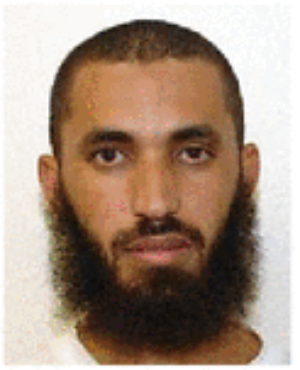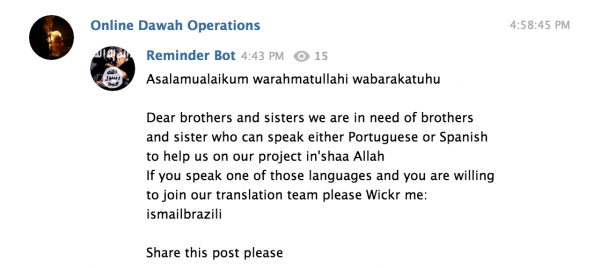Iraq: Flash Update on Recent Events – 25 June 2016
KEY FIGURES
85,374 individuals* displaced from Falluja and surrounding areas
23,559 individuals** displaced from Mosul and surrounding areas
3.3 million IDPs* in Iraq since January 2014
229,564 Iraqi refugees*** in the region
Funding
UNHCR’s overall appeal of USD 584 million for IDPs and Iraqi refugees in the region is only 21% funded
ANBAR CORRIDOR
▪ Conditions in the camps in Anbar Governorate are particularly difficult due to high temperatures and arid conditions. Suffocating heat is particularly an issue for new arrivals as many of the newly established sites are not connected to electricity. Families are not able to use their electric fans and the conditions inside the tents are unbearable, which poses a big risk especially to children and the elderly.
▪ UNHCR has continued to prepare further sites and erect tents in Al Khalidiya and Habbaniya Tourist City to accommodate the new arrivals. Since 23 May, UNHCR has installed 8 Rubb Halls and ovided 1,533 tents to provide temporary accommodation for over 9,500 persons displaced from Falluja.
▪ Since 23 May, UNHCR has distributed nearly 8,500 kits of core relief items (CRIs) such as blankets, mattresses and jerry cans to help some 50,000 people who fled Falluja.
MOSUL CORRIDOR
▪ The Governor of Erbil has granted a 114 dunam (250,000 square metres) piece of land where UNHCR and partners will be able to build a new 940-plot camp, capable of hosting an additional 6,000 IDPs. UNHCR has finalized the lay out of the camp and pending adequate funding, the camp will be completed within two months.
▪It is a priority to decongest the reception centre in Debaga camp, where there are currently 5,513 IDPs. More arrivals anticipated in the coming days as fighting in and around Makhmur district has intensified since 23 June. To make space for IDPs waiting in the reception centre, UNHCR is currently preparing plots for another 320 tents on the Stadium extension site, which will be completed over the next week. This will bring the total to 777 tents in the Stadium site including the extension and service area, which altogether will have a capacity to accommodate 4,000 persons (nearly doubling the current capacity which is full).
If Fallujah has been liberated by Iraqi forces, it did so with Iranian Shiite forces under the command of IRGC commander Quassam Soleimani. How does this square when Sunnis have fled? Is Iraq becoming an extension of Iran? Taking on Mosul will tell the full story if…if all forms of liberation hold in Fallujah.
A look at Iraq’s war against IS after Fallujah
BAGHDAD (AP) — Iraqi forces say they have completely liberated the city of Fallujah from the Islamic State group after a monthlong operation, marking one of their biggest victories since the extremists swept across large parts of the country in 2014.
But the IS group still controls parts of northern and western Iraq, including the country’s second largest city, Mosul. And the militants have shown they can still launch large-scale suicide bombings and other attacks. Here’s a look at what lies ahead for Iraq and the U.S.-led military coalition battling the extremists.
HOLDING FALLUJAH
Fallujah was the first Iraqi city to fall to IS, in January 2014, and the group’s last major stronghold in the sprawling Anbar province, a largely tribal Sunni region where distrust of the post-2003 Shiite-led government runs deep. A key task will be to prevent militants from returning to the city, as they did after two major U.S.-led assaults on Fallujah in 2004, when American soldiers saw their deadliest urban combat since Vietnam.
Iraqi authorities will also need to ensure that residents can return to their homes and rebuild, and that powerful Sunni tribes in the area stay on the government’s side. Those efforts could be complicated by the ballooning humanitarian crisis in Anbar and the presence of government-allied Shiite militias. The Iran-backed forces kept to the outskirts of Fallujah during the military operation, but could assert their power as the army moves on to other fronts.
___
A HUMANITARIAN CRISIS
An early test for whether the government can fully reintegrate Fallujah is already underway in sprawling desert camps outside the city, where thousands of civilians who fled the fighting are living out in the open, with little food, water or shelter. The U.N. estimates that 85,000 people have fled the Fallujah fighting. They may not be able to return for weeks or months while the army clears explosives left behind by the extremists.
Daytime temperatures approach 50 degrees Celsius (120 degrees Fahrenheit) in the camps, and aid workers have warned of a humanitarian crisis if more supplies are not quickly brought in.
___
THE LONG ROAD TO MOSUL
IS remains firmly in control of the northern city of Mosul, which was once home to a million people.
Iraqi leaders have pledged to liberate Mosul this year, but U.S. officials and analysts say that timetable may not be realistic. Iraqi forces are deployed in Makhmour, some 45 miles (75 kilometers) south of Mosul, but may need to seize an airfield on the other side of the Tigris River before launching an all-out assault on the city.
The U.S.-led coalition has trained more than 23,000 Iraqi troops since December 2014, but thousands more are needed for the operation to retake Mosul, according to coalition and Iraqi officials.
“Mosul can be a nastier fight than what we saw in Fallujah,” said U.S. Army Col. Christopher Garver, a spokesman for the American-led military coalition. “If that’s the Iraqi capital of the caliphate one would expect them to fight hard to maintain that.”
___
TURMOIL IN BAGHDAD
Victory in Fallujah has given a major boost to Prime Minister Haider al-Abadi, but his government is still crippled by political gridlock that has brought thousands of people into the streets in recent months. Supporters of Shiite cleric Moqtada al-Sadr have twice stormed the Green Zone, the capital’s heavily guarded government district, while demanding wide-ranging political reforms.
Baghdad has also seen a series of deadly attacks in recent weeks despite the advances against IS in Anbar. That has raised fears that the extremists may fully revert to an earlier strategy of targeting security forces and the Shiite majority in order to stoke sectarian tensions.




